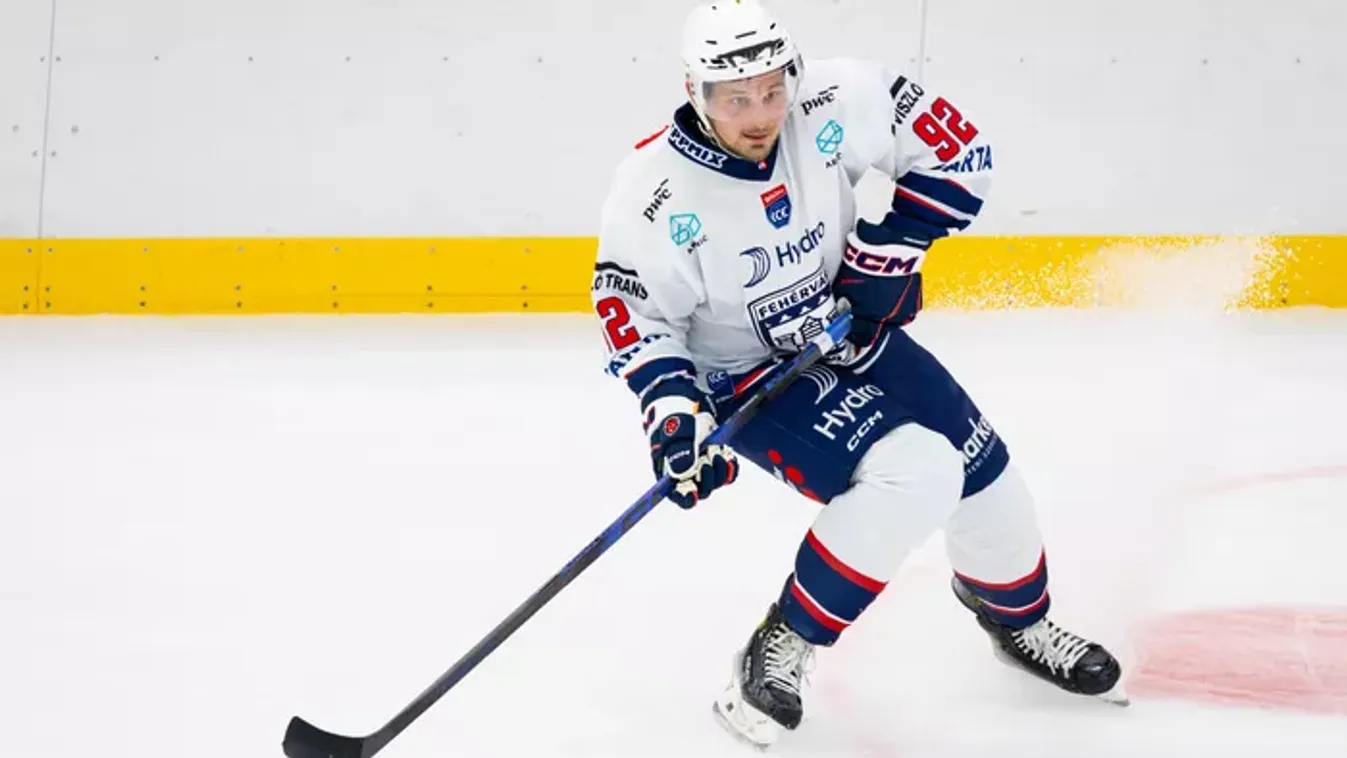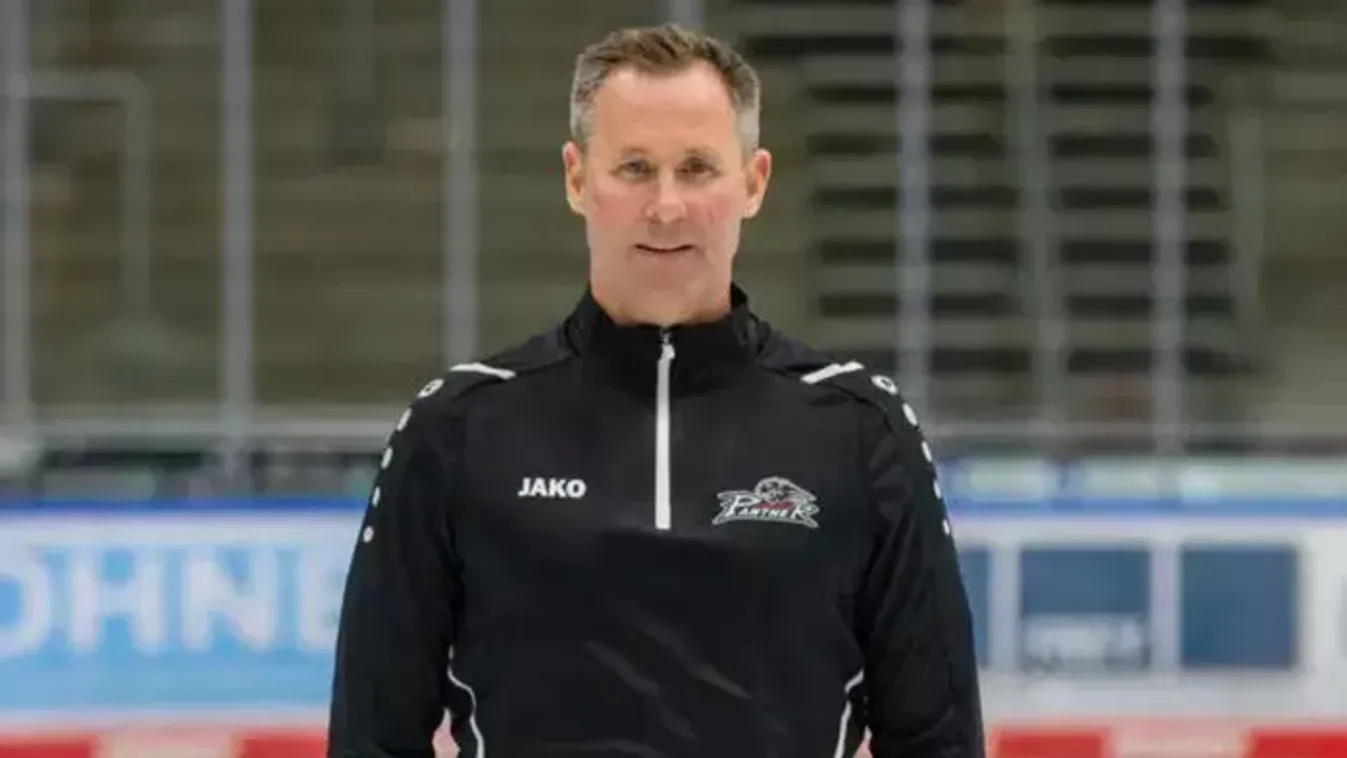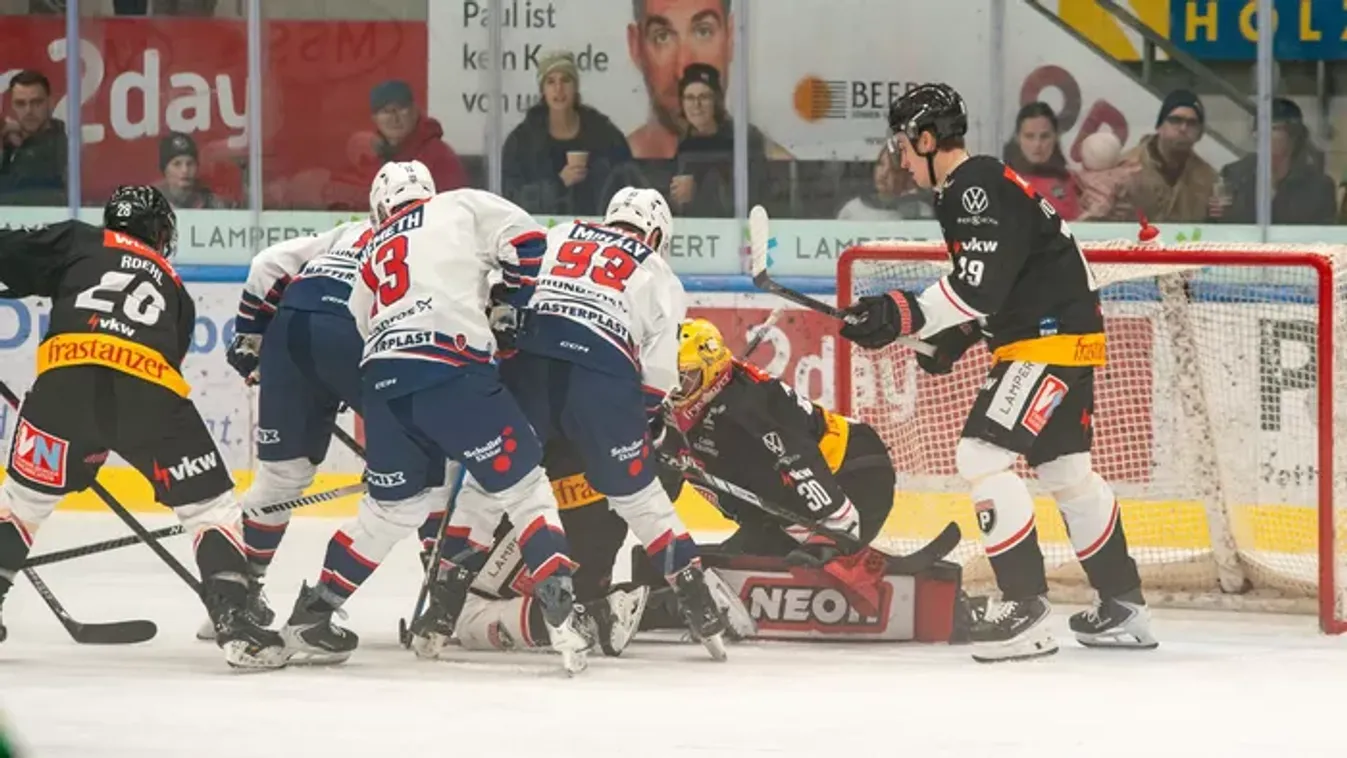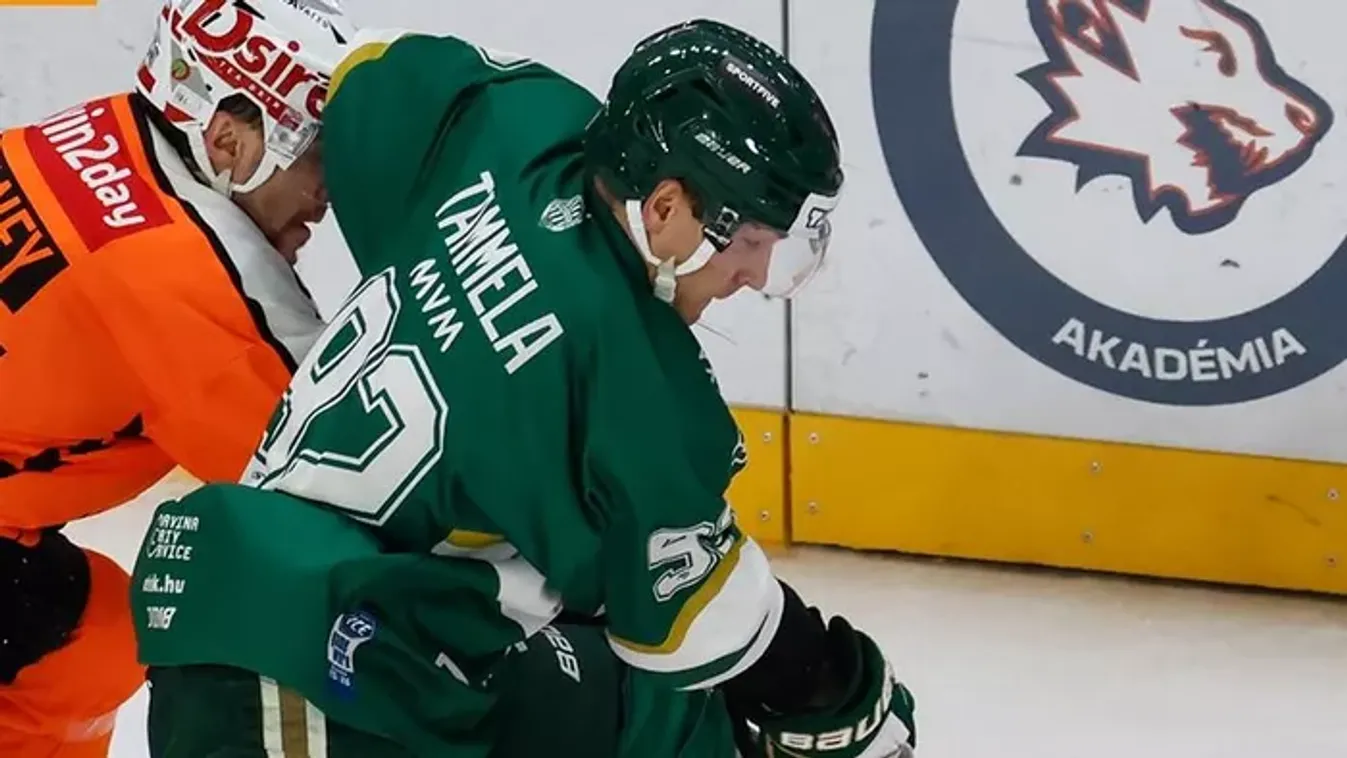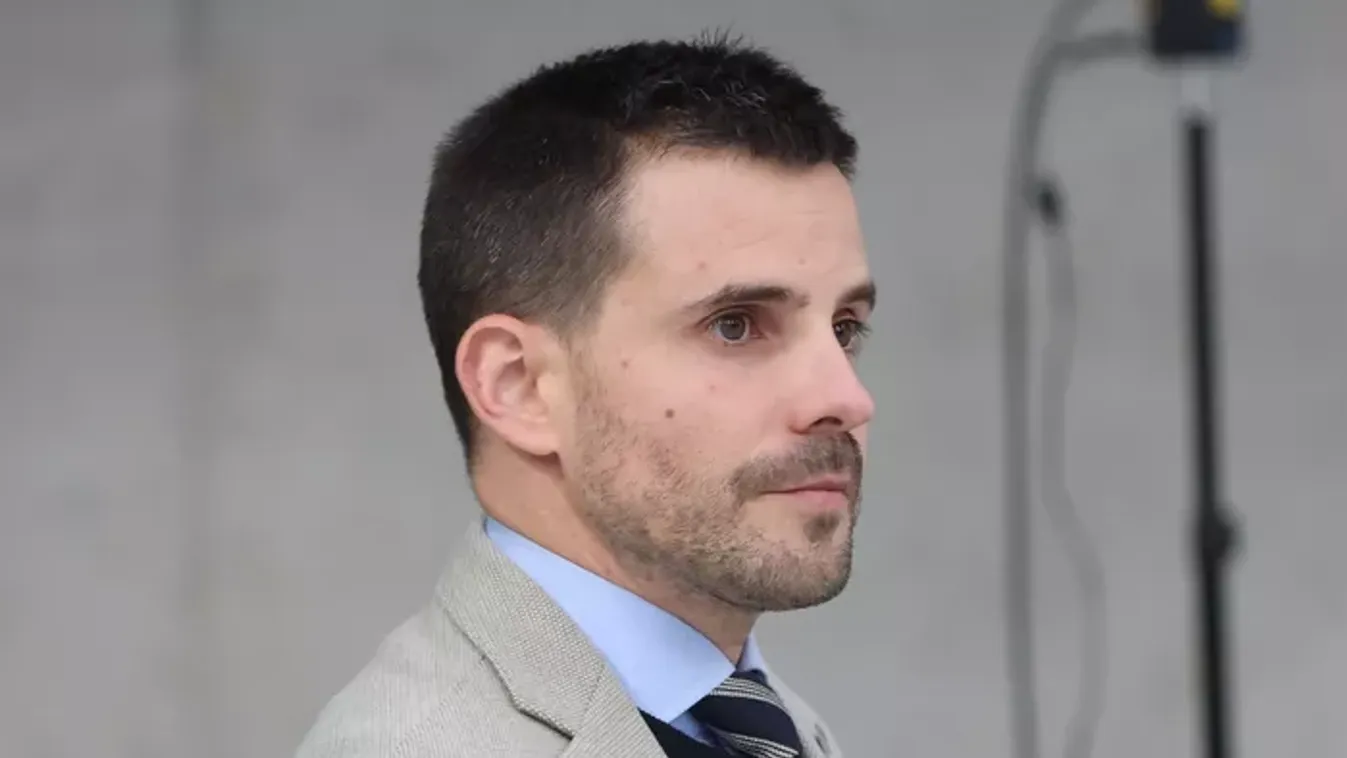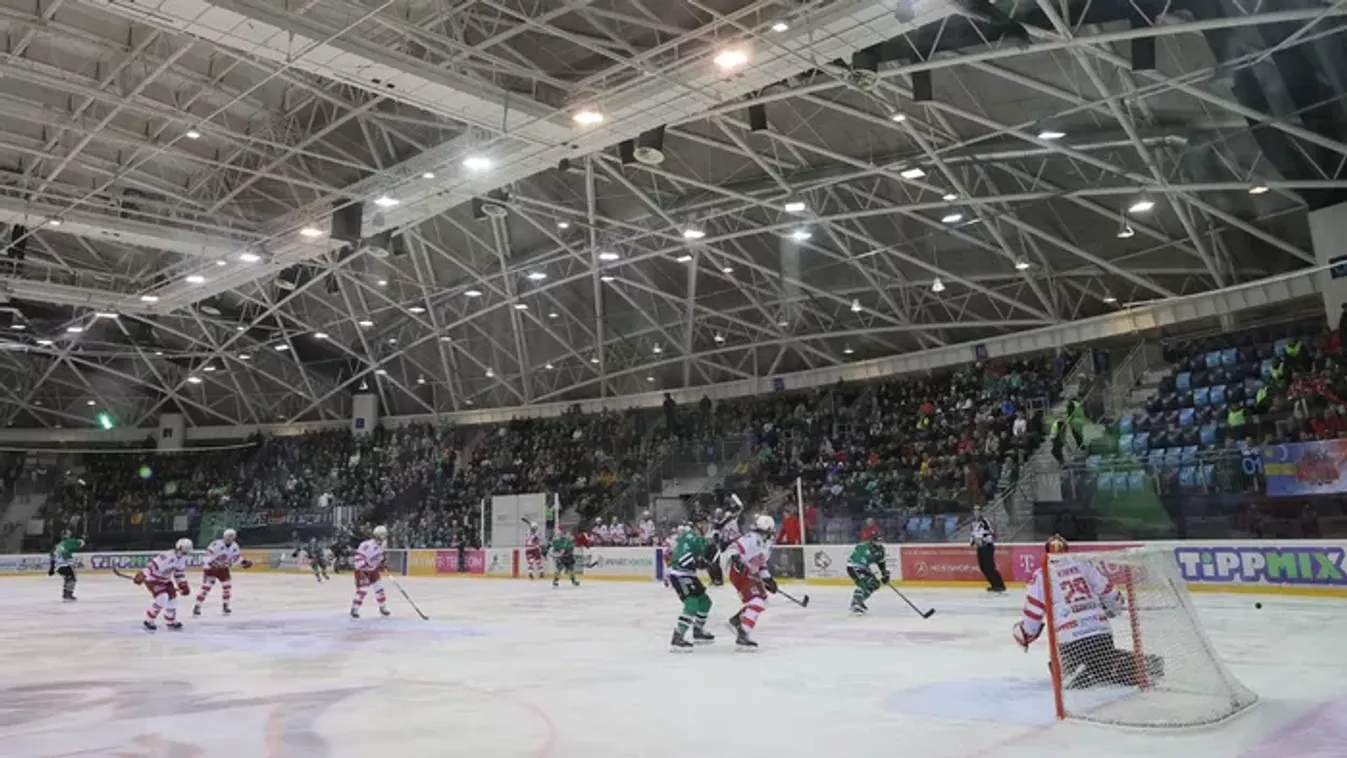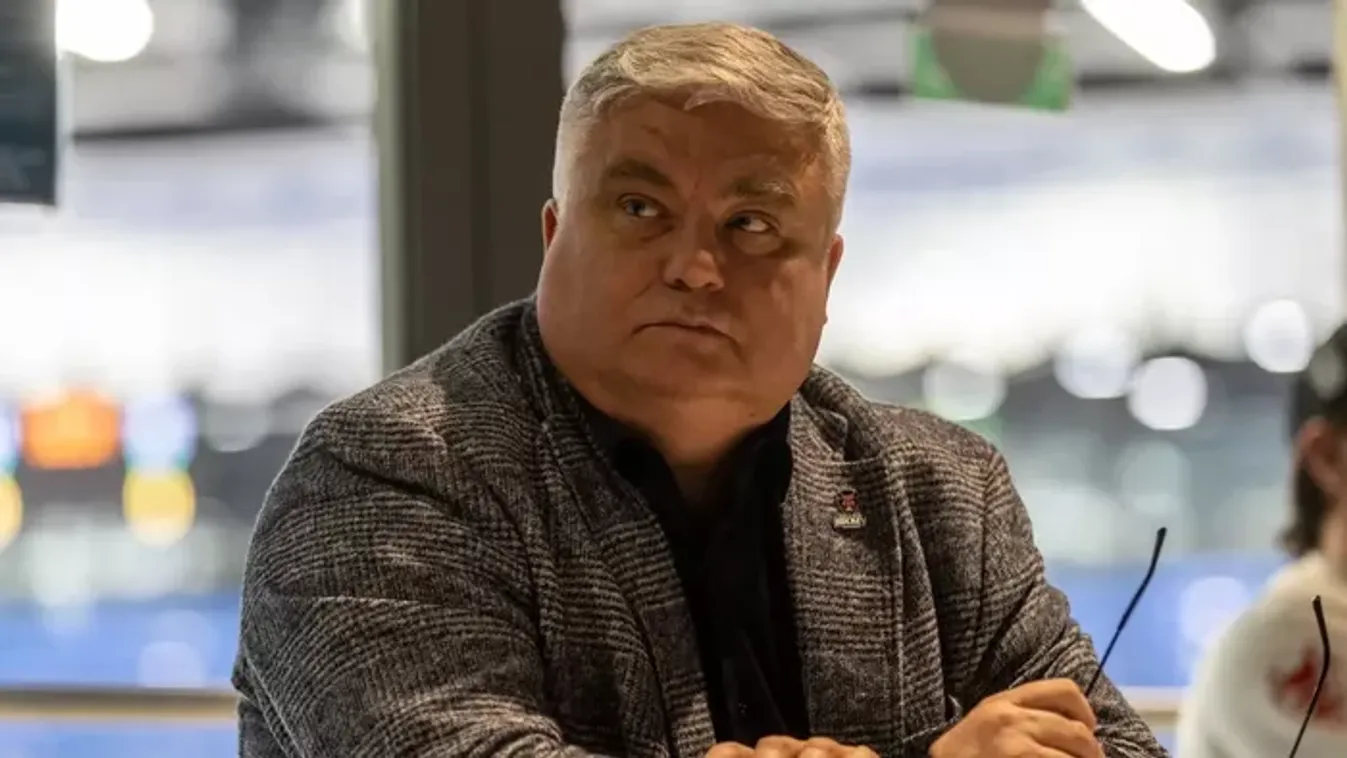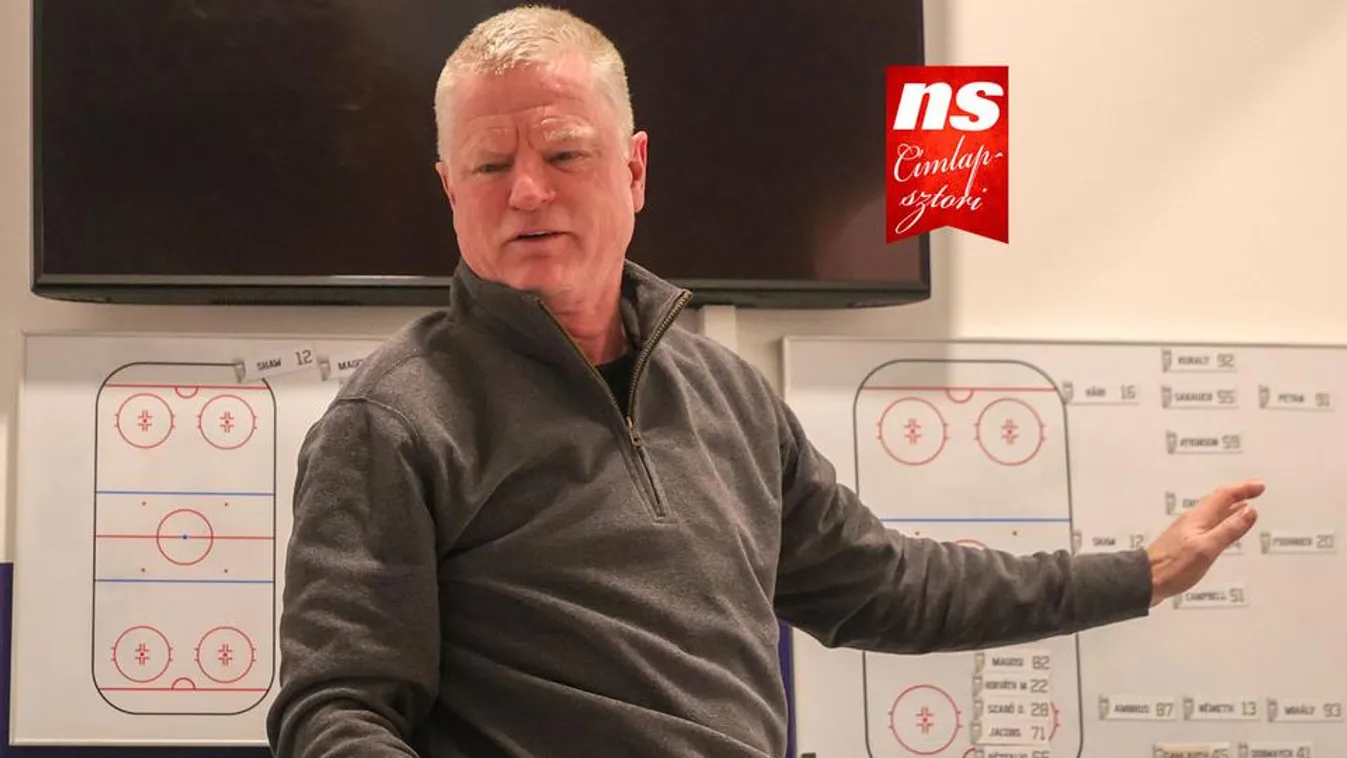
– Isn't that the tactical plan against Val Pusteria? I promise I won't peek...
– Believe me, you wouldn't understand much of it – answered with laughter Kevin Constantine, Hydro Fehérvár AV19's American head coach who is preparing for the playoffs, welcomed us in his office two days before the start of the quarterfinal match against the rookie team. – I have a good story about this. I was a first-year coach in the NHL with the San Jose Sharks, and we were preparing for a playoff game against the favorite Detroit. Suddenly, one of my players came up to me and put a piece of paper in my hand: "Here's Detroit's game plan against us for tomorrow." I just blinked, and it turned out that the guy's girlfriend was a receptionist at the hotel where the Red Wings were staying, and when Detroit's team leader went up to the counter and asked her to make three copies of this for him, she copied a fourth one, which then reached us... But believe me, that's not why we ended up winning that series as non-favorites.
–What was your secret? No matter how many places you went to overseas, your team performed well in the early years, regardless of age group or club.
–If I knew that, I would be a very rich man now. But honestly, I have no idea. I just liked to create plans, then develop them, and insist that in addition to the individual development of the players, I also forge them into a community, so that we can implement the plan together. I was only thirty-four when I got into the NHL, as one of the youngest coaches in league history. I was barely older than some of my players. Looking back, I often wish I had been 60 at the time, because I've become wiser since then, and I would handle things more wisely. But I'm grateful for that period, it's good to think back on what we've accomplished. For example, our 58-point improvement with San Jose from one season to the next is still an NHL record. And I would like to note that I have worked with amazing individuals in each of my teams.
–In San Jose, for example, with two-thirds of the dreaded KLM Line, the "professor," Igor Larionov and Sergei Makarov. These are really breathtaking names.
–Two of the five best Russian hockey players who have ever lived. You might think it was easy to set that record with players like them, but if we dig deeper, it wasn't like that at all. We started the season terribly, with zero wins and eight losses, so it was clear that we had to change something. And my two Russian superstars didn't happen to be playing how I wanted them to. They had a strong, firm idea of the game, they had well-established habits, entrenchments, and they didn't want what I wanted.
–For instance, they didn't quite like to defend...
–Not at all. They acted a bit like a one-man football team: they liked having the puck, carrying it. Then, if the attack didn't go the way they thought it would, they went back to the neutral zone and started all over again, and then again and again...
– How could you change them then?
– Well, I couldn't!
– So, what changed magically after the 0-8 season start that you still hold the NHL record?
– I told my assistant coach that I am done dealing with the five players who refused to play what we wanted them to play. Besides Makarov and Larionov, these players were Latvian-Russian defender Sandis Ozoliņš, Swedish boy Johan Garpenlövö (now the head coach of the Swedish national team), and Jeff Norton, who represented the North American line. They didn't listen to me at all, that was the only problem with them, so he was going to have to deal with them from here on out. He gave me a surprised look: "All right, but what do you want me to do with them? They can do whatever they want." So, we had to make a deal: we let them do what they wanted, the way they wanted, lo and behold, this famous five was the most dangerous line in the league for the rest of the season. Simply because I had to admit that their own methods were better suited to them than mine. Sometimes you have to stop and learn the lessons. This profession requires enough humility to be able to say, sometimes self-critically, that I don't have the right answer for everything, but sometimes the players do.
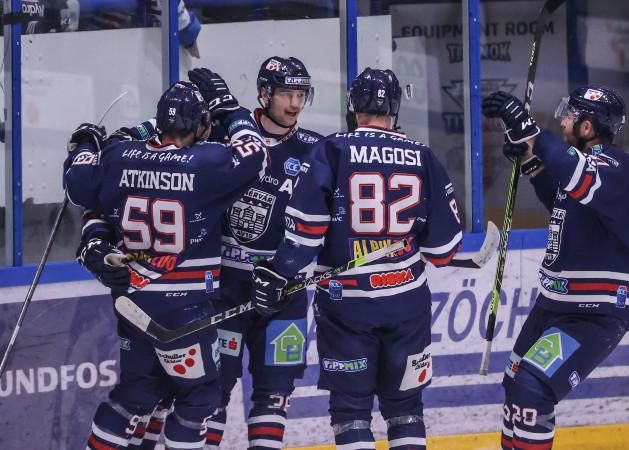
– Please, tell me a little more about them!
– Larionov was even shorter than me. He really was of small build but was brilliant and communicative. He questioned everything. When we talked about defense, he said - he didn't speak English well - "best defense is offense yours!" by which he meant to own the puck and attack, because if you have the disk and you attack, then obviously you don't have to defend... That's how they played. When they were on the ice for a one-minute line change, they rather kept the puck with them for 50 seconds, even if nothing happened, just so they wouldn't have to defend. But we didn't mind, because, on the one hand, they were very entertaining, and on the other hand, they were frighteningly effective. Makarov was the complete opposite. Perhaps he was even shorter than Larionov but more muscular, and never made a sound. When I introduced the half-hour one-on-one meetings once a month, he came in for the first time and suddenly started talking about his life when he neither said a word to me nor greeted me before. He was just talking and talking, when suddenly, in the thirty-second minute of the half-hour meeting, he asked in broken English, "How long has the meeting been going on?" I looked at my watch and said, “About thirty-two minutes.” "Oh, okay!" he replied, and with that momentum, he jumped up and left in the middle of his unfinished story...
– Was it difficult to bridge the cultural differences that might have been even more acute at the time?
– I can best illustrate this with another story. At San Jose at the time, the club thought that if Ozolins' former coach Vasily Tikhonov worked with me as an assistant coach, the young rookie Sandis might be able to fit in more easily overseas. Then Makarov and Larionov transferred to us. Now, I should add that Vasily was the son of Viktor Tikhonov (the notoriously ruthless and heavy-handed captain of the dreaded "Red Army," who won a total of four Olympic and 11 world titles with the Soviet national team during his nearly three decades of coaching – the editor). And as it turned out, Larionov and Makarov hated no one on the whole planet more than their master Viktor Tikhonov. I tried to find out the reasons from them, while simultaneously teaching them the American way. I said, "Guys, listen, this is America, even if you're mad at someone, you'll forgive them, you'll let things go, and you'll move on over time." Then they started telling stories... That Larionov's former Moscow teammate and best friend received the bad news that his sick father has only a few days left. The dominant CSKA was preparing for a match in the Soviet league with a team that had never finished a defeat with less than eight goals against them – it was quite clear that even without the poor guy, the match was a finger exercise. So, the boy exceptionally asked for a leave of absence so that he could at least say goodbye to his dying father, to which Tikhonov replied, "No way, you have a game to play." That's when I realized how differently the Russians "work." And then Makarov once explained to me that the reason he has such devilishly good hands is that he takes heat from mother earth through his legs, which then flows through his soul into his body... Well, it's a different world.
– After San Jose, you got other icons to work with in Pittsburgh. For example, Jaromír Jágr, just to mention one.
– He's an amazing player, and I could tell stories about him endlessly. He is the most talented player I have ever worked with – including Kovalev, Makarov and Larionov. At the time, our Pittsburgh team was pretty much dependent on him. He had amazing physical abilities, and with such legs and body, a man was simply unable to defend. It was very difficult to train him, he was self-righteous, an individualist, he wanted to solve everything on his own, because he had the tools to do it. He didn't always care what was going on the ice around him, and he was only willing to play with players who had the same attacking mindset as his. We had a lot of arguments, but there are many great stories now because of them.
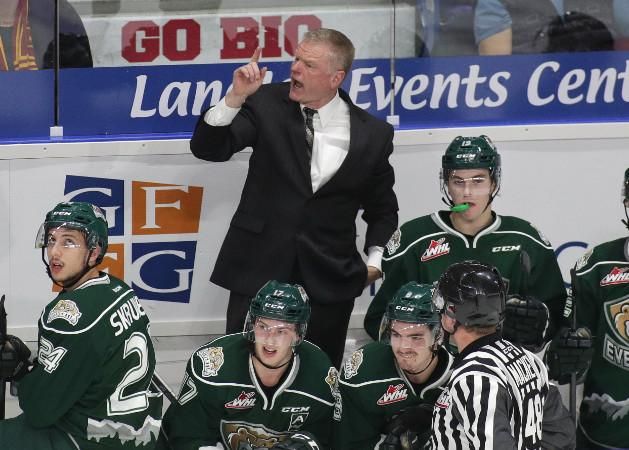
– Tell me at least one!
– Our first encounter was memorable right off the bat. During our first open training, riporters kept asking if Jágr would wear his helmet at the training. I didn't even understand this silly question, but when I was asked for the fifth time, I was a little irritated, and said of course, why wouldn't he wear it? I had just arrived from San Jose, where I was fired from after three years, so I didn't know at the time that things weren't exactly working out in Pittsburgh and that the players were often training in incomplete sets. The point is that I was nervous, all I was thinking about is that this was my second team in the NHL, my second chance, and that I shouldn't embarrass myself right away. So, I went out on the ice pretty quickly when the warm-up rounds went on, everyone was skating nicely, and was passing the puck – but Jágr is nowhere to be found. I didn't know then that it was a matter of principle that he would never put his foot on the ice even a second before training started. I kept looking in the direction of the dressing room from the corner of my eye to see where he was, and I kept praying for him to wear a helmet... And then I finally saw him coming out — of course, he wasn't wearing a helmet. I started thinking about how I can deal with the situation now: lay down the rules from the very beginning, make an example of everyone, or let it go the first time, saying it's just the first training session, and then we'll talk about it in private? I thought about it for about three minutes, and I finally decided to take a deep breath, go up to him, and tell him now. We'll see what happens then. So, I started speeding up – me, the former goalkeeper, with regular skates – to catch up with the best player in the world. However, as soon as I increased the pace, he increased it, too. So, 20 players watched the new coach chasing around his most important player... In the end, we did about six laps before I got tired of it and stopped next to him after crossing the rink. "Jaromír, the rule was to train in full gear, with a helmet," to which he replied, "These are your rules. It's not ours until we sign it." I couldn't argue with that, so I later took the new rules to the trade union guy, and the whole team signed it. So, that's how our acquaintanceship started with Jaromír.
– But it ended much better.
– We had arguments, but so good times – even though it's easy to imagine that he ended up kicking me out of Pittsburgh after two and a half years because he had tremendous influence. But the story between the two of us certainly ended nicely. I was coaching at my next stop in New Jersey, and he was playing in Washington. After a league match against each other, I was sitting in my office when suddenly Jágr knocked, and he came in. This would not have been possible for a normal mortal on earth since we have to get through very serious security gates and controls to the offices, but if anyone could go anywhere, it was Jaromír Jágr. And although we were never best friends, I was surprised and delighted, and I stood up to shake hands. But instead of saying hello, this huge, one hundred and twenty kilos of muscle, picked me up and held me tight that my legs were off the ground I couldn't say anything. It last about five seconds but seemed like an hour. He then sat me back in my chair like a doll, and he just grinned on his huge face with a huge smile. I couldn't say anything, but he said, "You were my best coach." To which then I replied, "Don't be silly, Jaromír, we both know that's not true." He: "No, no, you made me play the most." And yes, I made him play a lot, for obvious reasons. A lot of people thought he was just a muscle head, but he was actually an extremely smart and purposeful guy.
– After such a professional past, how did you later become a "world traveler" who ended up in Hungary after working in France, Switzerland, South Korea, and Poland?
– If you've been in this business long enough, after a while, you'll be aware that you can't stay in the NHL forever. I've had three opportunities to work as a head coach at the highest level, at three different teams, but if a door closes after seven years, you start looking for new doors. And then you realize that there are opportunities if you open up a little bit to the world and stick your head out of North America. Ten years ago, I sat at home without a job from June to August, and if you realize that no one wants to hire you overseas anymore, but you don't want to retire yet, you ask yourself what to do next. Then came the request from France. A former NHL coach is always asked why he would want to lower the level so much, and in return, I asked my professional acquaintances, including those in France. Most of my hockey buddies warned me that once I leave the United States, I wouldn't have the opportunity to go back to the level I was before. Then I asked people who didn't socialize in the hockey world. They then asked back, "Wait, do I get it right? You can live in France, see Paris, and even get paid for doing something that is your life! What are you thinking about?" They were absolutely envious, it was funny. And when I think about traveling the world, getting to know different countries, cultures, people, doing what I love, and getting paid for it — well, sometimes I really feel like I'm the luckiest guy in the world! So, I was like, I didn't fall in love with the NHL as a coach, I fell in love with the game itself - working around people and players every day, building a team, being together. And it's not all about money. Obviously, we all love the millions of dollars in the NHL, and nobody says no to that, but after a while, that's not important. I was not afraid of Europe at all because my family is of European origin: my grandparents were German on one side, Norwegian on the other, and I am a third-generation American. Maybe that is why I feel comfortable everywhere in Europe. I also love walking around the historic city center of Fehérvár among the cozy, old buildings. That's how I got to Switzerland and then to the other side of the world, South Korea – which was another cultural shock. Gigantic buildings, lots of people crammed into tiny spaces, and extreme respect for the elderly, as in Asian cultures in general. For example, after my first training session, the players came up and bowed to me one by one, and I was just watching... I thought to myself, I must be so old, but if it's good somewhere, then it's good to be old here! But going back to Fehérvár: an acquaintance of mine, Tyler Dietrich, who used to work here in Fehérvár (and was out with the Canadian national team as an assistant coach at the Beijing Olympics this year), once recommended the team to me seven years ago, and I was here for an interview. At the time, I chose another job from among the many possibilities, but the point is that the environment I arrived in this summer was no longer new. The reputation of the ICE Hockey League is also known in the hockey circle, so it was not a difficult decision.

– After reminiscing, let's focus on the present and Fehérvár. You could write club history here too, as this is probably the best chance for the team to reach at least the semifinals of the ICE Hockey League. What are the odds?
– I've never thought about it before a playoff; I think it's a waste of time and energy. What I do know is that when I asked the guys what they wanted to achieve this season, a third of the team said the goal was the playoffs. The other third wanted to be part of a historic performance, to be part of that Fehérvár that manages to reach the semifinals for the first time. And the last third stated that they've always played with the goal of being champions, otherwise, there's no point in going out there and doing it. After all these, what would it look like if it wasn't the minimum for me? We're already satisfied with one third we've done so far - reaching the playoffs - and now we're going to do complete the next third. Everyone is motivated enough to make club history, and I really want to help make this the team, with these guys, that can finally make at least one round in the playoffs!
| Born:December 27, 1958; International Falls, Minnesota, United States Height/weight:178 cm/75 kg Position as a player:goalkeeper Major clubs as a head coach: NHL: San Jose Sharks (1993–1996), Pittsburgh Penguins (1997–2000), New Jersey Devils (2002). AHL: Houston Aeros (2007–2010). WHL: Everett Silvertips (2003–2007 és 2013–2017). IHL: Kansas City Blades (1991–1993). NAHL: Pittsburgh Forge (2001–2003). Francia topflight (Ligue Magnus): Angers (2010). Swiss topflight (NLA): Ambri-Piotta (2010–2013). Asia League: Daemyung Killer Whales (South Korea, 2017–2020). Polish topflight: Unia Oświęcim (2020–2021). ICEHL: Hydro Fehérvár AV19 (2021–). As an assistant coach. NHL: Calgary Flames (1996–1997) Achievements as a coach: in the NHL, the team set an NHL record for largest improvement in a single season with the San Jose Sharks (in 1993-94, the team finished 58 points more than a year before) – it is still the current record; Finalist of the Jack Adams Award for Best Coach in the NHL (1994); the only NHL coach to take two eighth-seeded teams to the semifinals (San Jose over Detroit in 1994, and Pittsburgh over New Jersey in the first round of the playoffs in 1999); the best rookie year in the WHL history with Everett Silvertips, the team only lost in the finals (2003), IHL winner and Coach of the Year (Kansas City Blades, 1992) |
|
Translated by Vanda Orosz
